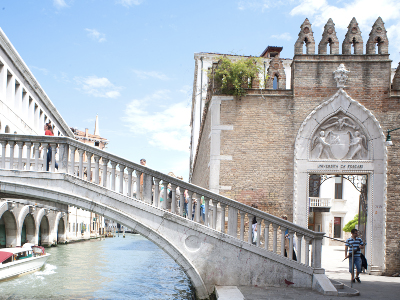
|
|
|
Context
Social science is undergoing a revolution. The rise of social media, smart cities, digital archives, quantified selving, and personal agents is providing an unprecedented amount of data about the social relations and behaviors of very large groups of people, creating an opportunity to a more empirically grounded social theory. But this opportunity can only be realized by using powerful tools: for analyzing textual data, for finding patterns in data, and for visualizing those patterns in a way that brings out their meaning. These tools increasingly rely on complex systems science and Artificial Intelligence.The school
This summerschool mixes theoretical lectures with practical hands-on sessions and ateliers to examine how novel tools of computational social science can help us understand these phenomena and possibly facilitate future democratic decision processes. It introduces social scientists and media researchers to the latest methods, tools, and techniques and introduces AI researchers and complex systems scientists to the approaches and issues of social science so that they can come up with new new tools or refine existing ones.
More specifically, participants will learn how they can build Opinion Observatories that tap into social media to collect information about how certain actors are trying to manipulate political opinion in elections, how fake news gets fabricated and spreads, or how opinions get polarized and shift. They will learn how AI and social media might breathe new life into participatory democracy and how citizens can get empowered to make up their own minds or explore critical issues such as pollution or over-exploitation of their urban environment for tourism. Participants get the opportunity to present their own research in poster sessions. There will also be opportunities to visit relevant social and cultural projects in Venice.
Ateliers
The summerschool stimulates active participation in smaller groups which each engage in concrete case studies guided by a group leader. Each group considers the various aspects of a complete pipeline from data to analysis and modeling. A case study considers a specific contentious issue (for example climate change) using specific data sources (for example newspaper commentaries). The computational social science platform Penelope will be used to make data and tools available to all participants. In addition, invited speakers address either specific themes or topics of the case studies.
The ateliers focus on one or more contentious ISSUES relevant for today: Hate/excitable speech, Migration and borders, Climate change, Antagonisms and Coalitions, and Populism.
They will be based on DATA SOURCES from different social media: Bulletin boards (such as 4chan or Reddit), Newspaper articles and their commentaries, Twitter data streams, Facebook data streams, Political manifesto's, parliamentary speeches.
Each atelier has a champion which introduces the case study on the first day and organises further steps of the ateliers on subsequent days. The STEPS considered in each case study are:
1. Data acquisition, curation, access, and legal issues.
2. AI and Natural Language Processing.
3. Analysis tools using statistics, graph theory and complex systems science.
4. Visualisation.
5. Mathematical modeling from game theory to opinion dynamics.
6. Facilitation to maintain healthy debate
The school has a matrix structure with one day devoted to each step in the pipeline and talks about background and technical tools, as well as hands-on experience sessions for each atelier and using different data sources.